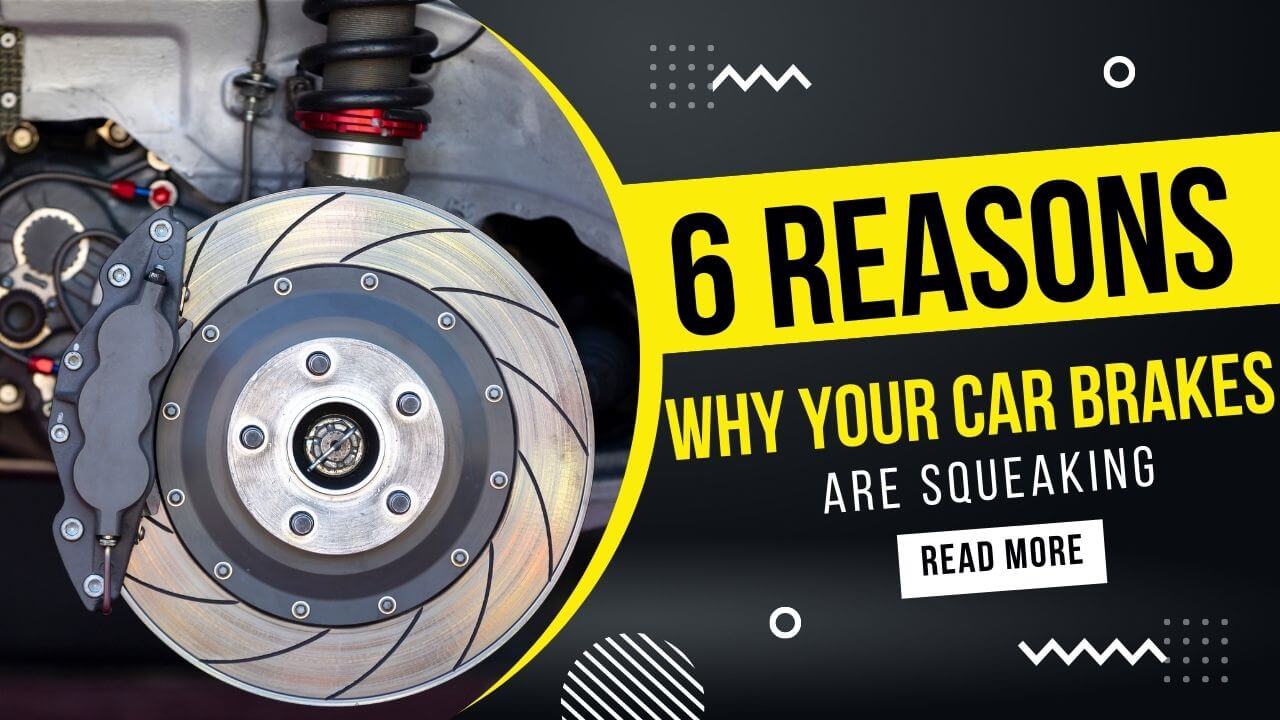Hey, do you want to know why your car Brakes are Squeaking? If yes then keep reading. In this article I have listed the 6 Reasons Why Your Car Brakes Are Squeaking.
What do you do when you encounter a squeaking voice in your brakes? Do you continue driving the vehicle and tell yourself that all this might be temporary?
When such a voice comes, it means your brakes are shouting and telling you that they need help and you must show it to the nearest mechanic as soon as possible.
Brakes are one of the essential components of a car, and one must take care of them at all times.
Squeaky brake pads are unpleasant to hear. However, do not panic when the voice comes. The reasons your brakes are squeaking depend on numerous things. In this blog, we will discuss why your brakes are squeaking.
The efficiency of a car doesn’t always depend on its acceleration or fuel economy. It also depends on factors such as how fast it comes to a stop. If the brakes are efficient, you can always protect yourself and your family.
In general, the cause of squeaky brakes is metal-on-metal contact. However, there are other reasons too. Let’s look at various reasons your brakes are squeaking.
1. Dust or debris between your pads and rotors
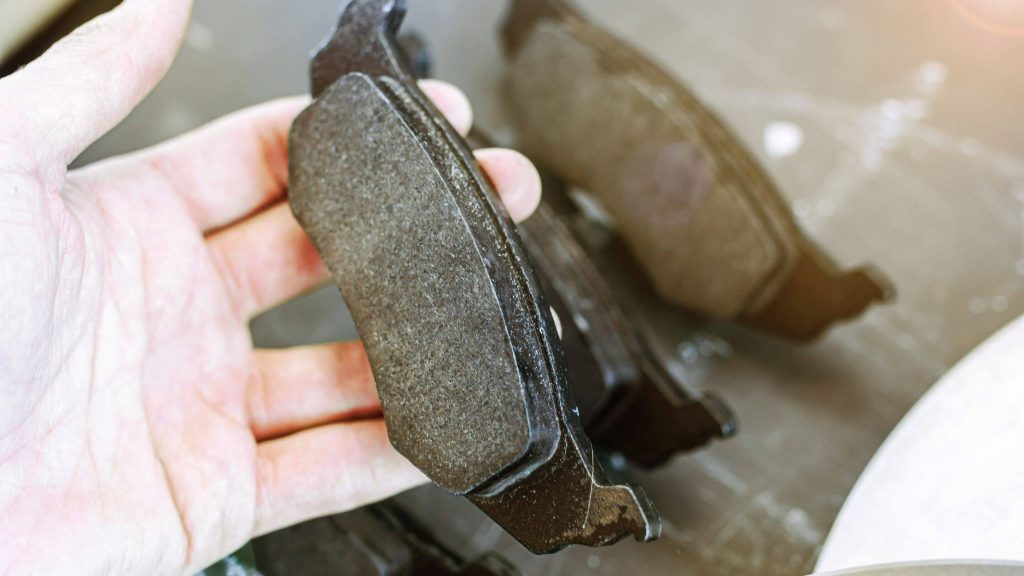
Imagine driving through an unpaved way or a mountain. You see a restaurant and visit it with your family. However, as the road is filled with mud, your shoes have captured a heap of it. When you resume driving, the dust and debris will go into your car and brake pads.
The dust will get embedded in the car brakes and cause noises. As they get trapped within the brake, they cause uneven braking too. It is one of the most common reason why your car brakes are squeaking
Brake dust is a major everyday problem that every car owner faces. Brake dust forms as the brake pads rub off carbon fiber and tiny metal shavings from the rotor. While stepping on the pedal, these materials grind and make a squeaking noise. This brake dust can cause damage to the surface of your wheels and even destroy brake pads. The brake dust might also cause the reduced performance of your brakes.
2. Moisture

Moisture and dew are not suitable for your car. The braking system soaks the moisture from the air. So, when the car is left unused overnight, these car brakes accumulate dew. Hence, during the morning times, these brakes tend to make noise. Rust and corrosion take place due to the moisture in the vehicle. The same phenomenon happens during rainy weather, which can also cause brakes to squeak. So moisture is also a big reason why your car brakes are squeaking
Most likely, the rust will be removed once you apply the brake. However, you must check with the mechanic as the moisture and damp weather can be a hazard to the brake fluid.
3. Hard and fast braking
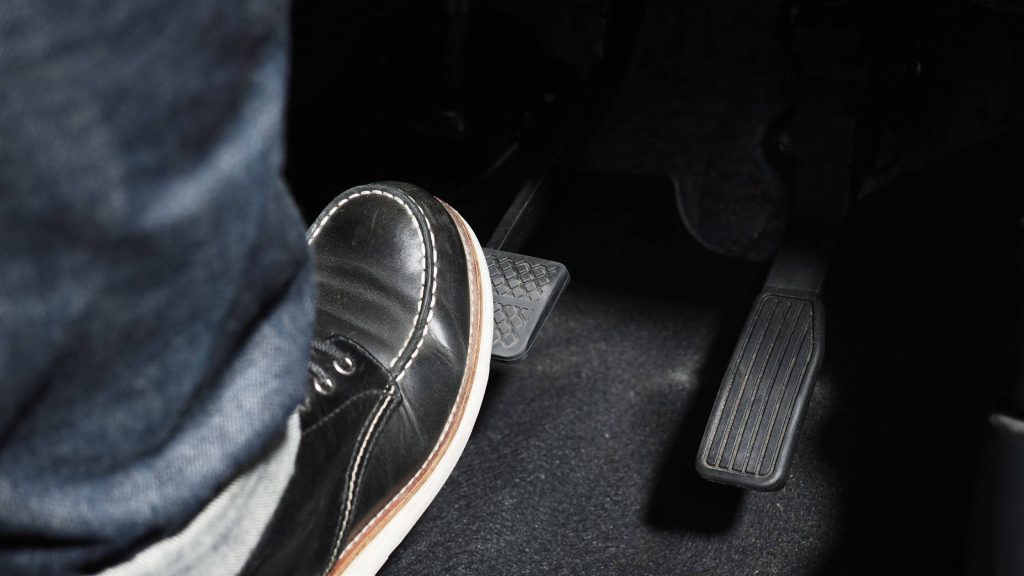
Most experts suggest you drive at a recommended speed, so you don’t apply immediate brakes.
While driving, a dog may cross, or a vehicle can pull out of nowhere. In such cases, you’ll have to slam your brake. Braking immediately is unavoidable in emergencies, yet they cause damage to your brake pads.
Fast braking affects your brake pads quickly. They cause brake pads to wear out faster and damage the brake discs and rotors. This is what makes your brakes squeak. A squeaking brake needs immediate attention since you’re at high risk if your car’s brake isn’t performing as usual. So, hard and fast braking is also a reason why your car brakes are squeaking.
4. Lack of lubrication at the contact point
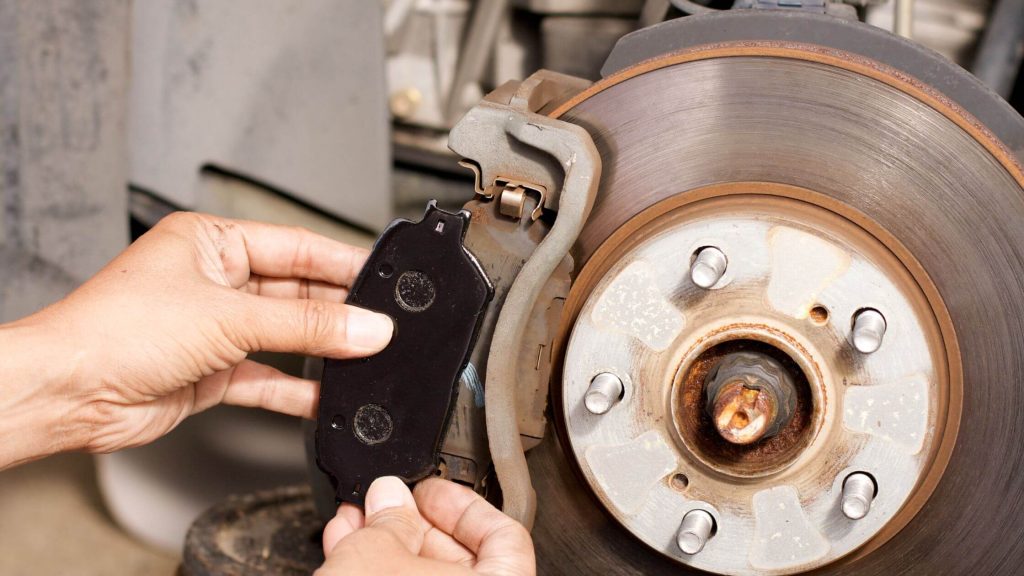
Lack of lubrication in the braking system is a common problem, especially in older vehicles and it is the main reason why your car brakes are squeaking. The metal rusts if the contact points lack lubrication. This causes the shoes to scrape against the plate and produces squeak noises. To prevent this, lubricate your contact points often, and use a high-temperature lubricant. The squeaking voice happens due to the high metal content of brake pads.
Brake pads are available in the market in three types: organic, ceramic, and semi-metallic. Out of them, semi-metallic is the market’s most commonly used brake pad. When these semi-metallic brake pads rub against the rotor, it may cause squealing or grinding noise. Once your brake pad gets worn out, this sound may stop. Opt for brake pads with less metal content if the noise bothers you.
Organic pads are better and cheaper alternatives. They are durable and deal well with dust. However, ceramic brake pads are the best in terms of performance and quality. They are a bit expensive, but they are the quietest and the most commonly used brake pads you could find.
5. Thinning Pads
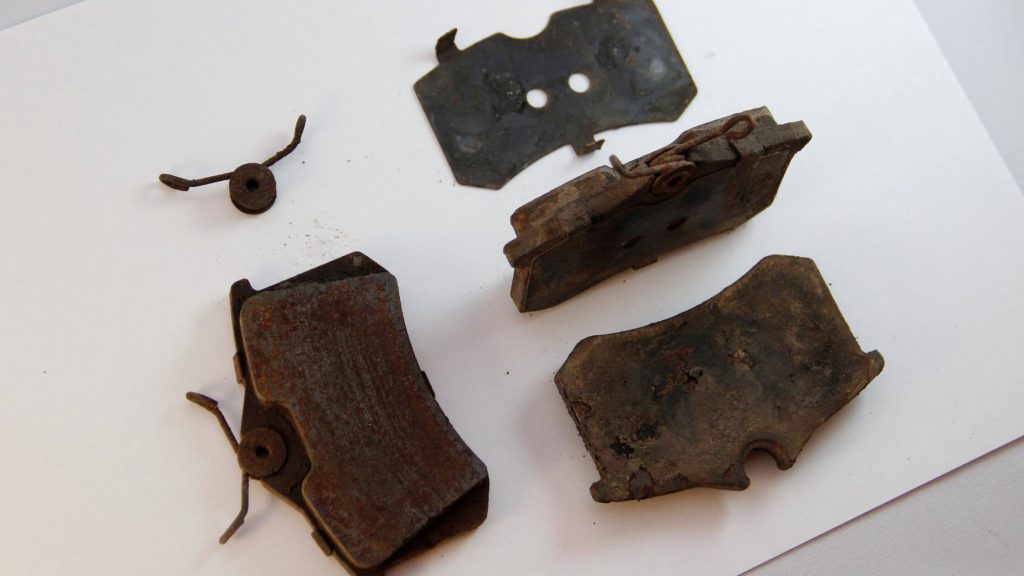
Thinning of brake pads is a significant problem in cars. For the brakes to function correctly, the thinning of brake pads should not go below ¼ inch. The thickness of brake pads plays a vital role in road safety. The end recommended wear limit for brake pads is ⅛ inches.
Driving with thinner brake pads can cause extremely high risk and it is also the biggest reason why your car brakes are squeaking. Try to change your brake pads when they appear to be very thin. A brake pad measuring ⅓ inches or above is a must for the vehicle to stop safely. When your brake pads are thin, you will not be able to immediately slow down the vehicle even when you press on the brake pads. Hence, one must protect himself by changing thin pads immediately.
6. Worn Brake Pads
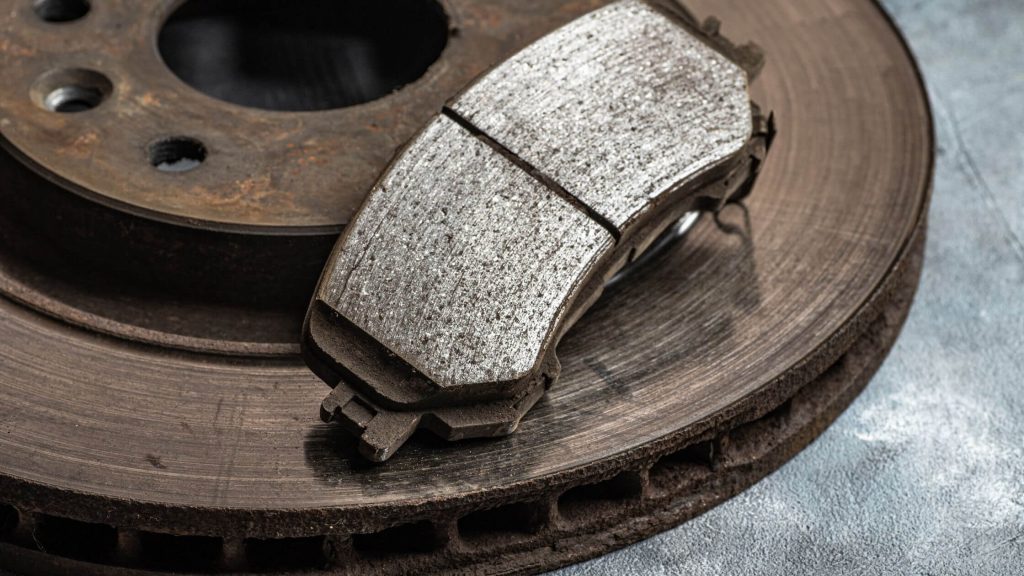
Brake noise is caused primarily by worn or loose shims, springs, or fasteners. Your pads may be prematurely and unevenly wearing if the rotors are being dragged, vibrated, and overheated.
When metal wear indicators on brake pads touch metal rotors, they squeak. It is also one of the most common reason why your car brakes are squeaking. Your brakes should be replaced soon if this happens due to wear and tear over time. You can hear this metal squeal when your brake has 10-15% life remaining, alerting you that you need to replace your brake pads soon as it makes a high-pitched squeal.
The brake pad is continuously shaved away by metal every time it is applied. Your pads will become thinner over time as a result of this. Eventually, you will have to replace them because of this phenomenon. When brake pads wear down, metal drags across metal on the disc, resulting in a squeaking sound. This noise indicates that the car’s brake pads have worn out, and you should take it to a repair shop to exchange them.
What to do when your car Brakes Are Squeaking?
If your car is new or you recently installed your brakes, and your brakes are still squeaking, it may be enough to grease the contact points of your brakes. The brake pads must first be removed from the calipers. In addition, it is essential to lubricate the caliper carrier and the backs of the pads. It must be noted that grease should not be applied to the rotors or pads since it can damage them.
A vibrating brake pad may occur if it’s not securely seated. The noise should go away when installing shims to eliminate vibrations and squeaking.
However, If your brake pads and rotors are squeaking and have been used regularly for many miles, it’s probably time to replace them. In that case, you might hear a loud grinding noise caused by metal on metal. It is easier to identify squeaking brakes when pads or rotors are worn, making it easier to schedule an appointment for brake repair.
Conclusion
Everyday trips can be miserable and dangerous when your brakes squeak. Vibration, cheap replacement pads, or worn-out components can cause brake squeaking. Your brakes may need a little grease applied to specific contact points, shims installed, or they may require some repairing. The brake noise may return after a repair, indicating more significant problems. There may also be a need to replace the brakes after further inspection. Alternatively, an axle, hub bearing, or transmission issue may occur.
Hence, your ears must be alert when you hear noise from your brakes.
So, that’s it from this blog. I hope you enjoyed it. If you liked this article on 6 Reasons Why Your Car Brakes Are Squeaking then please share it with your friends. If you have any questions then feel free to ask in the comments section down below.
